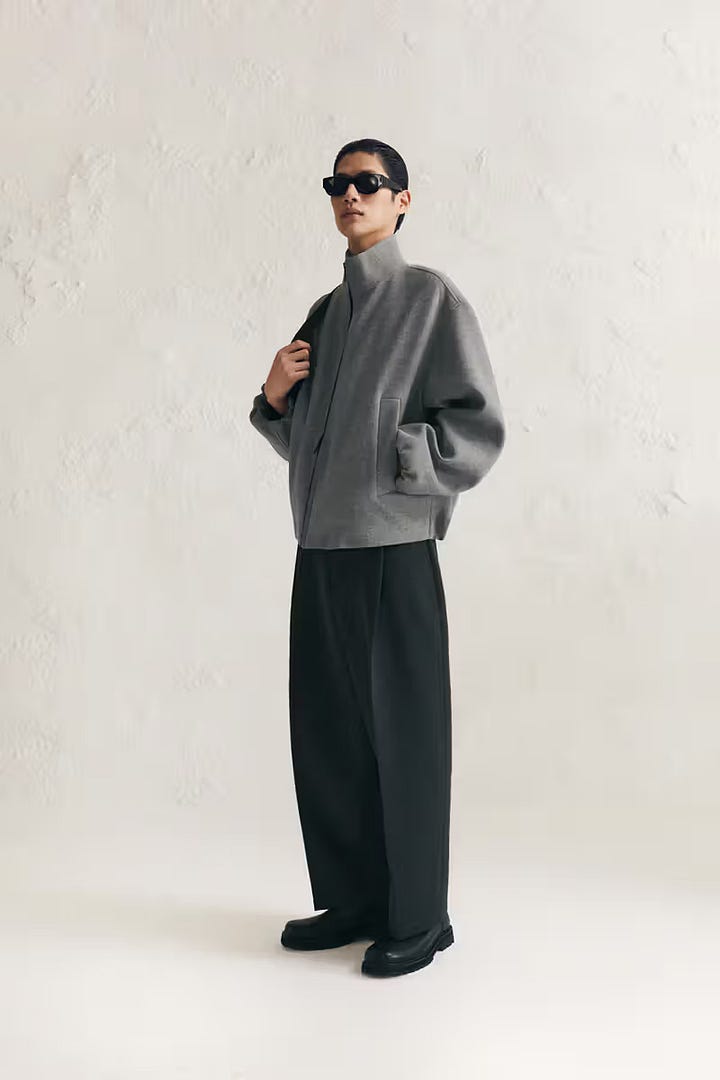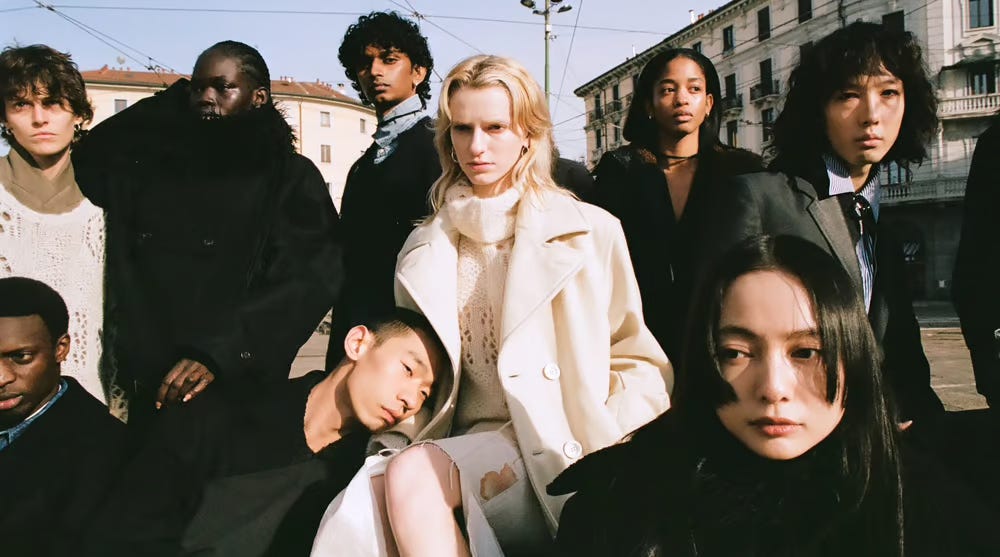Why Do We Feel Like Brands Owe Us Something?
The cost of being early to the party is that the party keeps going without you.
For better or worse, subcultures in fashion are mostly a thing of the past - the idea of shared interest via recognisable dress codes or brands feels like something that doesn’t exists in the internet generation. Cultivation of a unique ‘personal’ sense of style is the pervasive goal, and exposure to an endless Pinterest scroll covering all the aesthetics of the past 50 years mean that would-be fitsmen are able to pick and choose elements from a laundry list of influences that have equal footing in the digital space.
Brands, and an affinity for them, have become the new subculture. The scandi-coded ‘Ganni Girls’, queues of preppily-dressed Aime Leon Dore die-hards, even the bloody Supreme line, brands are now who we frequently latch onto for a sense of identity. I’m as guilty as can be with this. My Our Legacy love borders on obsession akin to the constant chasing of the perfectly neat fringe of scene kids in the early 2000’s, and while my interest largely stems from the brand playing with styles that draw influence from subcultures I do identify with, it’s the world of OL that I buy into more than anything, saving campaign imagery and posts on Instagram in the same manner I might have cut out pictures of Bowie in decades gone by. Where this brand=subculture conflation falls apart, is that brands are intrinsically, corporations. They care about their customer base, sure, but at the heart of the output it’s about building business and increasing earnings. Why then do we feel like these corporations owe us something?
When Our Legacy garnered headlines within the fashion space at the end of 2024 due to investment from arguably the corporation, LVMH, many were quick to decry the death of the brand and be disappointed in the decision to no longer operate out in the Wild West of independent business. I wasn’t one of these naysayers, but someone in a group chat did sum up certain feelings well — it’s like when the band you love starts playing arenas, you’re pleased for their success, but can’t help feeling like said success comes at the cost of losing the secret that you thought was just yours. This is a fallacy of course, bands only reach those stadiums when they have 1000’s of fans already, and brands only get calls up to the big leagues when they’re raking in money and have 1000’s of customers, but in the absence of belonging to a wider group of likeminded dressers, it’s easy to see why people feel dismayed, anxious or even betrayed when their fave purveyor’s of jawns ‘sell out’.
This story of brand betrayal is never more prominent than when smaller designers or brands collaborate with the devil of the industry — Zara. The first truly eyebrow raising collaboration in recent memory for me was the Studio Nicholson x Zara collection, that saw Studio Nich silhouettes and brand codes delivered through the affordable Zara lens. It left a bad taste in my mouth at the time if I’m honest. Studio Nicholson was such a respected brand in my internal ranking, partly down to the philosophy of a conscious and long-lasting wardrobe that formed the backbone of the brand. This felt at odds with the mass-production, ethically-questionable, trend-loving, cheaply-made output that I associate with Zara. Then came and Wander x Zara, which felt again at odds with my understanding of and Wander’s focus on making deeply technical garments that surely will be lessened by having to work within Zara’s supply chain to meet price points that their customer would buy into. Then, Samuel Ross, founder of A_COLD_WALL*, whose recently launched made-to-order brand SR_A focusses on made in England footwear, and utilised Italian and Japanese fabrics — quality that is decidedly hard to achieve at the Zara price point. Ross said to Vogue that the discussions with Zara came about from him ‘looking at the foundations of what apparel is for, and finding a way to make a sense of magic in that space’, which he felt hadn’t been achieved at Zara yet. Worthy approach? Maybe. Perhaps a more reasonable assumption is that if brands like Studio Nicholson didn’t collaborate, Zara would simply replicate their styles without them. Maybe it’s better to be in the room than outside while someone steals your stuff.




Most recently, and perhaps most frustrating for me, was when one of the people in menswear who I (and many others) look up to, Aaron Levine announced a project with the highstreet behemoth. At first my reaction was disappointment, followed by slight relief that it was a curation not a collaboration, which in truth only furthers Levine’s positioning within the industry, which I do consider a big win. When then thinking more about the man, who is no stranger to the highstreet after his rebirthing and revitalising of Abercrombie and Madewell, something like this made perfect sense. It was about democratising style and an approach to dressing well without needing the luxury budget, as opposed to a simple money grab. But why would the money grab have been a bad thing? Why did I feel like this man, who I’ve never met, owed me more than working with a brand that I didn’t vibe with, when his collaboration with a brand like Drake’s only garnered him more goodwill? It’s because he had cultivated a persona that I wanted to emulate, in the same way that Our Legacy has made a world I want to live in — both man and brand had given a semblance of culture that is missing, and when the reality sets in that Aaron is a man with a family who simply needs to keep working, and OL is a brand that needs to keep selling clothes, it’s not the betrayal of the person or brand that actually stings, it’s the understanding that a sense of belonging to an authentic group, local or global, is increasingly harder to come by.
Brands like Studio Nicholson might not be able to continue to exist without an injection of money and awareness from a collaboration with Zara. Our Legacy might begin to dwindle without investment. Aaron Levine simply likes making cool stuff easier to get. Sometimes the cost of riding and dying for a brand means that at some point, you’ve got to accept that they don’t owe you much beyond sending you the item you ordered.






Interesting argument :discussion . It’s emotional isn’t it , culture. Xxx